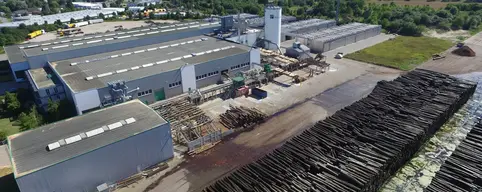

The prices of pallet wood in Europe are experiencing a significant increase, putting the pallet industry at risk. Countries like France, Germany, and the United Kingdom are at the heart of this concerning trend, which can be explained by numerous interconnected factors. This creates significant challenges for several industrial sectors that rely on sawn timber, particularly construction.
Several elements directly contribute to the rise in wood prices. Firstly, high customs duties on wood imports are weighing heavily on the market. Rising transportation costs, exacerbated by inflation, add further pressure with often unpredictable and fluctuating rates. Additionally, disruptions in supply chains, linked to various global factors, intensify this market instability.
As a result, price indices reflect this trend. For instance, the German HPE index for pallet wood saw a notable increase, rising from 391.09 to 419.09 between January and April of this year. This highlights the challenges facing the industry and underscores the reality of a price surge that shows no signs of slowing down.
In France, the situation is equally concerning. The National Wood Federation has emphasized that the rise in log prices could have a direct impact on the final price of sawn timber, a critical material for many sectors. These increases make production costs more unpredictable, creating a complex chain of economic ramifications for manufacturers.
This challenging economic context has repercussions across various industrial sectors, particularly those heavily reliant on sawn timber, such as construction. Companies are forced to either pass these additional costs on to their customers or absorb the losses, a difficult decision that affects their overall competitiveness and profitability.
Pallet manufacturers are feeling these economic constraints acutely, as sawn timber and logs remain essential for their production. Many are concerned about the long-term impact of these price increases on their operations. Sourcing wood at minimal costs is becoming increasingly problematic, and this logistical complexity appears set to persist.
Furthermore, this situation is worsening in a challenging post-Covid context. While the industry is slowly moving toward recovery after the pandemic, these new economic pressures could slow down the progress already made, creating a complex dynamic for companies seeking to stabilize their operations.
Global trade uncertainties add another layer of challenges. Ongoing trade tensions, combined with unresolved customs duties, contribute to maintaining an unstable climate in the wood market. This complex situation calls for a collaborative response between industry stakeholders and policymakers to envision sustainable solutions to these constant fluctuations.



